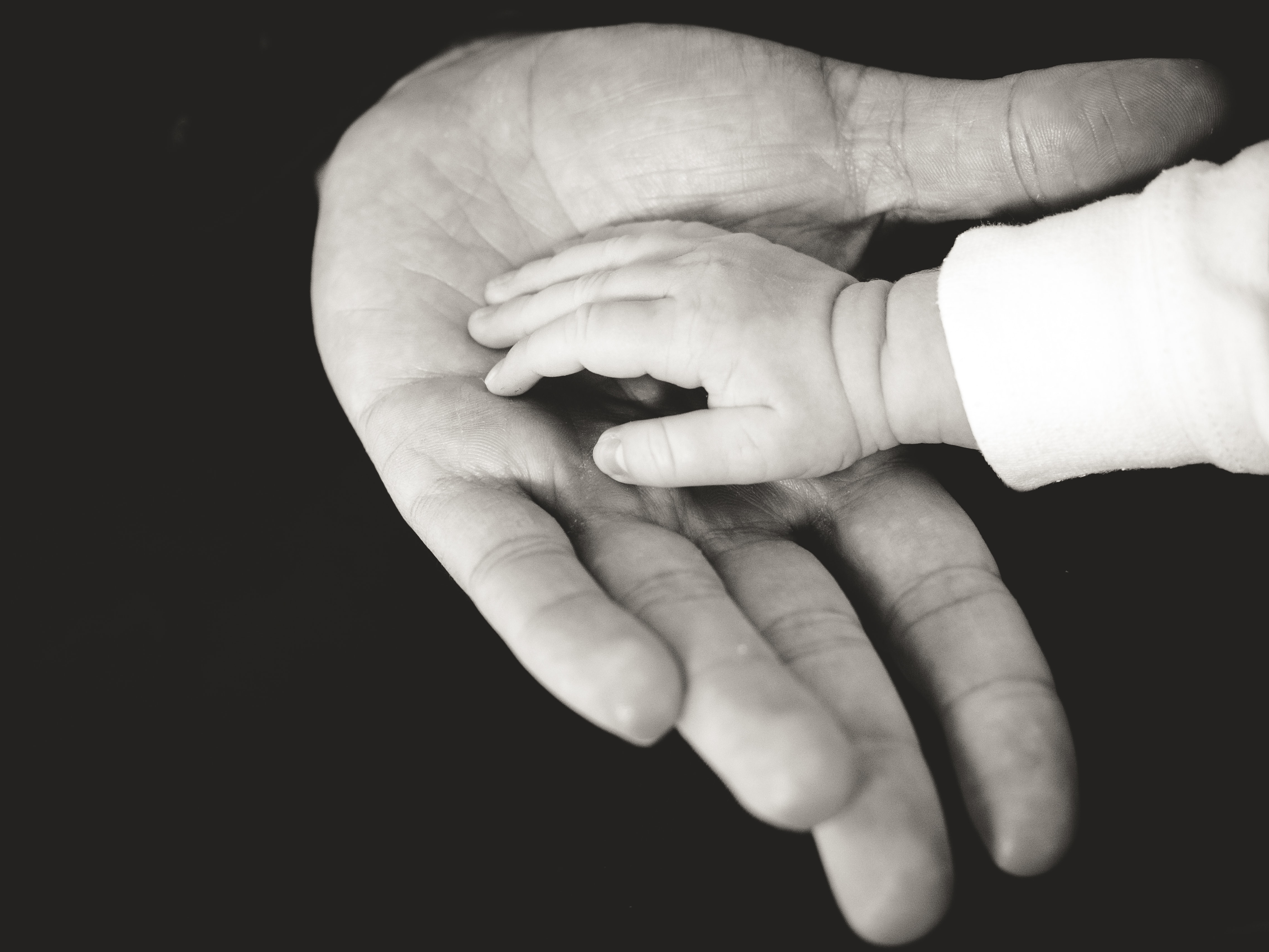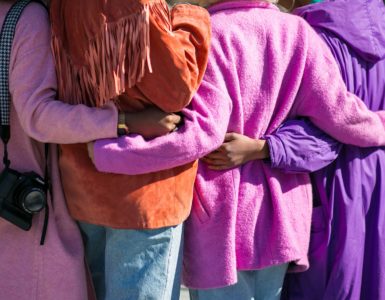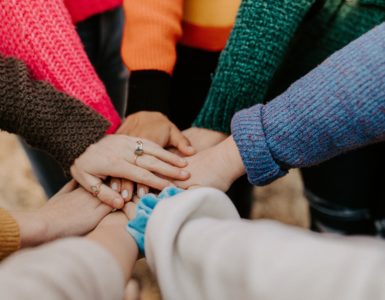Adoptive mothers typically saturate the adoption world with their perspective and their experiences. The mothers tend to be the most vocal, the most willing to share with others, and the most present online representatives of their family units. The fathers don’t often choose to shine the spotlight on their own perspective, sometimes leaving other fathers who are looking for solidarity feeling alone and isolated. Adoptive dads are often their families’ backbones, quietly but firmly holding each piece together. Whether your family is looking to adopt, are in the trenches and nearly home, or have been home for a long while, you can see the importance of making sure adoptive fathers are supported.
To help bridge the gap for adoptive fathers, giving them a platform to share their voice, I interviewed my husband about his experience adopting our son and how his perspective has changed during the process. We adopted internationally, special needs, out of birth order, with biological children/babies already in the home, and are now a multiracial family.
What was the most difficult part of our adoption process?
Ryan: I think it was definitely the paperwork. The amount was a lot, but specifically also how it comes in stages. It always seemed like so much to do, in a very specific order – immigration could only be done after background checks, fingerprint validity expires and you have to get them done more than once (and in my case, had to do them multiple times at the store since I could not seem to master the “ink and roll” right!). We also had trouble getting the schedule of all the available fundraisers and grants down; since most of them are only applicable once your home study is complete, it felt like once you finished this huge pile of paperwork (home study and dossier), the break never came because the applications for all the grants and fundraisers were due. It all just seems inefficient when you really just want to get to your child. I understand why it is all necessary, but at that moment, you just wish it wasn’t so encompassing.
What was the most rewarding part of our adoption process?
Ryan: Besides meeting our son for the first time, the experience of international travel and culture was really fun and enriching. I really enjoyed traveling overseas twice and getting to learn more about where he is from. It was so nice to be able to bring souvenirs, pictures, and memories back with us that we wouldn’t have normally had if we didn’t get the chance to travel. I loved being able to dip my toe into that part of his life since we had missed so much in the beginning.
How would connecting with other adoptive dads have helped you when we were in the trenches?
Ryan: I wish I had had the opportunity to hear other dads’ stories before I experienced my own. That really would have helped me not feel so bad about the moments either our son was struggling or the moments that I was struggling. After witnessing my own failures and seeing our own bad experiences, I heard about how other dads have seen really tough things with their own adopted kids (poop on walls, people getting bit or hit, kids running away, screaming or being screamed at). Knowing that I wasn’t the only dad who struggled to not only manage my own feelings but also to help my child learn how to manage his emotions was really encouraging. It’s so hard when you’re in the moment, you know? Everything can just seem so heavy and isolating that being able to reach out and say, “Hey, did you kid hurt himself when you got home? What did you do to help?” would have really helped me feel like I wasn’t alone. We read the books and listened to the seminars, but talking to a real dad who had lived similar moments, who had a similar perspective, would have made a much bigger impact.
What has been the most surprising part of adoption?
Ryan: Everyone walks into adoption with expectations; the most surprising part has been to watch those expectations get flipped on their heads. Each challenge that we have faced have been specific to our child and our family and are likely unique to each family. Whether those challenges be the methods of bonding, the speed of growth and development, or the physical and emotional issues you see daily once you’re home, they didn’t meet any expectations I had in my head at all. My perspective shifted. There were moments where it didn’t matter what books I had read or what our agency had taught us. Everything seemed so unique and overwhelming in the moment and like nothing I thought it would be like. The growth I have seen in my own heart has been unexpected too, in a really positive way.
What is your favorite memory about our experience while we were in the process?
Ryan: I can remember having our whole family (me, you, the three kids, and both of your parents) in the taxi in the main town and I was trying to speak some of the foreign-language phrases I had learned that day to direct our taxi driver to our apartment. It was difficult and fun and I loved the challenge of surviving with all our kids in a foreign country. The entire trip was an adventure, but it was symbolized by that taxi trip. We weren’t sure if we would get back to our apartment without being ripped off or lost, which is how a lot of the experience felt. Would we make it to the embassy in time for our appointment without being lost? Could your dad, who was not good at learning the language, return our rental car to the airport and make it back alone without issue? Would we be able to get the right food for the kids? It was a crazy adventure, but it was really fun.
How have his special needs impacted you as a dad?
Ryan: One of the biggest changes I can see in myself is that my empathy has grown for caretakers of those with special needs. I am more patient with others and don’t just expect the same methods for success to work for every person. I have become a lot more capable of seeing differences in people, especially our kids, and realizing that if I want them all to succeed at one bigger goal, I’m going to need to present it in multiple ways so that each child can accomplish it. I am also sometimes really thankful for those quick growth moments with some of our neurotypical kids because I know the hard, slow, thoughtful work that it takes from the kid and the parents (or caregivers). I have learned to appreciate the effort given on both sides.
Do you think birth order has affected our family? Or does developmental age trump chronological age?
Ryan: I think it has only affected our family in very limited ways. Developmental age seems to definitely trump chronological age. Our adopted kid has bonded with each of the biological kids as they have grown to match his developmental age and then, as they developmentally pass him, he seems to reach out to the youngest again. Although he is chronologically the oldest, it doesn’t feel that way in our home. So, there was no upheaval of status when we brought him home – our daughter, though younger, has definitely held onto her firstborn status.
What do you think – should we do it again?
Ryan: Absolutely! I would definitely be up to a similar experience (adopting a young child) or would be up to adopting an older child once the kids in our home were older (or maybe even when we become empty nesters).
His Trip and Emails
Our son’s birth country required two trips and since I was home with a one-year-old and three-week-old, my husband had to go on the first trip without me. He thankfully wrote about each of his days there, thereby helping me experience the trip through his eyes. I ended up sharing his writings with friends and family, and people absolutely loved reading about his perspectives and what he encountered meeting our son for the first time across the ocean. A father’s viewpoint, before our son was even legally our own, was so important to me and to others reading. I know he impacted others through his writing by simply providing perspective, even back then when we hadn’t even begun wading through the trenches of post-adoption life. On his last day in-country, my husband got to feed our son. Our son could not chew food upon coming home at three years old, so this was a tricky but important job while there.
“Today, I got to feed our son. There was just one problem; we were not alone. So, as I sat with the other little children at the little lunch tables, I felt a series of punches in my gut as each one stared straight into my soul from their tiny plastic lawn chairs. Some would smile as I waved and cheered, others would just continue to stare as if I had done nothing, and others, mostly the older ones, began to change their faces into rock hard defenses, knowing that I was not coming for them. And our son, seeing my interaction with the other kids, immediately started acting distressed and hurt-why was this guy who kept calling himself my daddy leaving me to talk with the other kids? he was thinking. So, even though a part of me felt terrible, I picked up our son from the table and began to play with him away from the other children, yet in plain view of them. Though I knew it, I have never felt the unfairness of this world more than in that moment. Why, with so many families able to adopt in the world, are these cute, chubby cheeked, lonely kids still here?? Shouldn’t it be us fighting over them? Not them fighting to get a family.”
I could hear my husband’s heart opening during that first week – blossoming to learn to grow in times of difficulty. I can still see it today, how his perspective shifted, and I am thankful that he saw the need right alongside me. We have been blessed by our son and we are forever grateful that he has joined our family.
Being able to share a father’s perspective on adoption is so important in helping other members in the adoption triad (and beyond) feel connected, heard, and understood as they wade through their own battles during their journey. Whether you are adopting an infant from your own state, adopting a teen from across the world, or anyone in-between, having another father’s perspective could help you hold tight to your sanity, allowing you to step up and mentor with other dads down the road. Adoption is not easy – I don’t think any dad would tell you it is. But, with the right education, connections, and self-reflection, any adoptive dad can feel supported throughout his own journey in parenthood. Churches have even begun, within their adoption ministries, to start including “Adoptive Fathers Night” in their scheduled events to help give dads a community to connect with. The need is becoming more evident and I believe that adoption ministries, agencies, and organizations will start to recognize it more and more. I think the adoption community at large will start making changes and adaptations to their outreach programs to bring more fathers into the increasingly inclusive support fold.
I would like to give a special thank you to my husband, Ryan, for putting it all out on the table. Thank you for sharing your perspective as well as the deepest parts of your memories, for enlightening readers about not only the beautiful parts, but also the difficult moments of adoption, and for loving our family so well. You have traveled the world to help bring us together, oceans apart, and we are so thankful for how you love us all.




